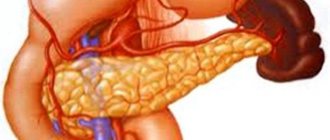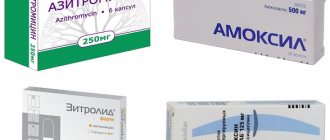What are the benefits of juice therapy?
A lack of vitamins and nutrients means the body lacks resources for renewal and restoration, as well as for carrying out vital processes.
Freshly squeezed extracts from vegetables and fruits, which are a concentration of vitamins and microelements, are a practically safe method that helps treat and prevent various diseases at home.
Why is treatment with nectars so effective? Is it really only the presence of vitamins that plays a big role in health? Another advantage of juice therapy is that it can cleanse the body. Juices stimulate metabolism and strengthen the immune system. They are easily digestible, therefore they have a beneficial effect on the functioning of the gastrointestinal tract.
The effect of juice therapy will not occur after several doses of the drink. This process should become a daily habit, only then will it allow you to maintain vigor of body and spirit.
You can also drink juices if you have gastritis. However, it is important that they are properly prepared and adjusted according to the acidity level of the stomach.
Aloe juice
This is a universal remedy that is used for gastritis with any secretory function. Aloe stimulates the restoration processes of epithelial cells and prevents their damage, improves blood microcirculation in tissues, eliminates the inflammatory process and binds free radicals. Has an antiseptic, immunostimulating, laxative effect. Soothes irritated mucous membrane of the digestive organs, colic, heartburn. Heals erosions and ulcers, has an antiallergic effect.
Aloe has astringent properties, which is also valuable for high acidity, as well as for erosive gastritis.
For the treatment to be effective, middle and lower aloe leaves of at least three years of age are used to obtain juice. They are cut and kept in the refrigerator. The juice is squeezed out immediately before use.
The optimal dosage option is ten drops three times a day, half an hour before meals. The duration of therapy is from three weeks to two months. If gastritis is accompanied by constipation, the dosage can be increased to 50 mg, guided by your feelings.
Undiluted juice of this plant is contraindicated for acute abdominal syndrome, uterine bleeding, pregnant and lactating women, diseases of the heart and blood vessels, liver, hemorrhoids and individual intolerance.
[], [], []
For gastritis with low acidity
Before focusing on this or that drink, a patient with gastritis should make sure that it does not harm the inflamed gastric mucosa. What juices are allowed to be consumed for gastritis with low acidity?
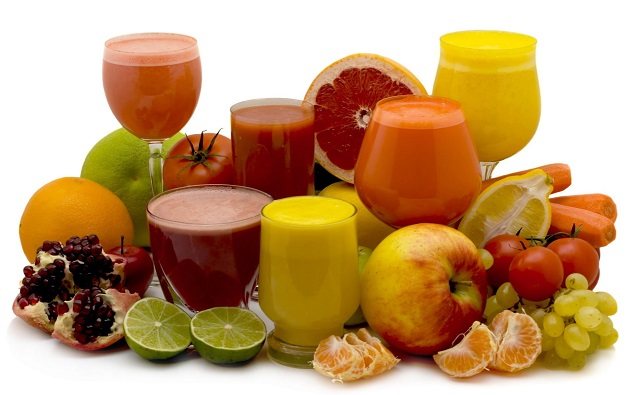
Tomato
If the secretion of gastric juice is low, you can drink tomato nectar - it improves digestion. Tomato juice is able to neutralize the processes of intestinal putrefaction and fermentation, which often accompany gastritis with low secretion of gastric juice.
Treatment with tomato juices will help reduce the need for sweets and confectionery products, because tomatoes are rich in natural sugars - fructose and glucose. This is to the benefit of the patient, since with gastritis, chocolate, cakes and baked goods are included in the category of prohibited foods.
Apple
Apple juice is excluded from the diet of patients suffering from high stomach acidity. But it helps to treat inflammatory processes in the gastrointestinal tract caused by a lack of gastric juice and digestive enzymes.
Apple extract is rich in iron and sugars. It is a good helper in the fight against cancer because it has antioxidant properties. In addition, apple juice can remove harmful substances and carcinogens from the human body.
Pomegranate
Pomegranate extract is the king of vitamins. Everyone knows that pomegranate juice has a beneficial effect on hematopoietic processes, and it also supplies the body with materials for the formation of proteins.
Pomegranate juice is a recognized elixir of youth that fights free radicals.
Pomegranate drink is rich in tannins, which eliminate decay processes both in the oral cavity and in the intestines. Pomegranate juice can also increase stomach acidity and speed up the digestion process.
Apple, pomegranate and tomato juices are not only a way to bring your digestive system back to normal, but also a tool that helps prolong your life.
Cases where adherents of juice diets live to be 100-110 years old are a common phenomenon.
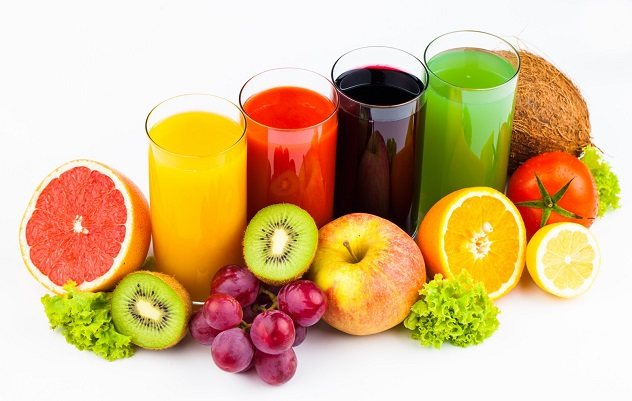
What juice can you drink for gastritis: potato, aloe, carrot, tomato with different acidity
A disease such as gastritis is being diagnosed more and more often today. People of any age are susceptible to it, from primary schoolchildren to pensioners. Most often, inflammation of the gastric mucosa is caused by bacteria of the Helicobacter pylori species.
The deterioration of the patient’s condition is provoked by many factors: poor nutrition, disruption of rest and sleep patterns, unfavorable environmental situation, constant stress.
The therapeutic diet for gastritis limits the consumption of coarse fiber . Experts recommend replacing vegetables and fruits with juices. Let's figure out what drinks can be included in the diet, and what is better to avoid?
Beneficial features
Drinks prepared at home from fresh berries, fruits and vegetables not only have a pleasant taste, but will also bring a lot of benefits to the body.
Juice therapy has the following effects:
- cleanses of toxins,
- stimulates digestion,
- speeds up metabolism,
- replenishes vitamin deficiencies,
- regulates water-salt balance,
- strengthens the immune system.
Juices are easily digestible and do not injure the gastric mucosa, which is important for a patient with gastritis.
How to choose a drink in a store?
Natural juices prepared independently will bring significant benefits to the body , while packaged drinks from a factory conveyor contain a lot of additives that are harmful to the stomach. But if you don’t have the equipment to prepare the drink at hand, you need to learn how to choose a healthy product on the store counter.
Ready juices are produced in two ways: direct extraction or reconstitution.
The latter option assumes that a certain concentrate is brought to the required volume by adding water. The latter in the drink can be up to 90%.
Since in its natural form such a product will have no smell or taste, it is generously flavored with food additives and tinted.
To avoid fermentation, the liquid is preserved by adding antioxidants (citric or ascorbic acid) or by subjecting it to heat treatment.
Most store-bought drinks are
nectar , which is 80% sugar syrup with a small amount of fruit concentrate added .
The raw materials used in production are of low quality. Fruits no longer contain the required amount of vitamins or nutrients. Flavors and dyes are added to nectars to make their taste more intense.
Vegetable drinks such as tomato, carrot or pumpkin will be more beneficial because they retain some of the vitamins. But here, too, special attention must be paid to the composition.
It should not contain sugar or its substitutes (aspartame, fructose). Since fruits with dense pulp are first prepared into puree, and only then diluted with water, you need to pay attention to this. The share of natural components in a quality drink is at least 70% of the volume.
Directly pressed juices are as close to the natural product as possible . Production standards prohibit adding flavorings, preservatives and colorings to such drinks. The finished product is subjected to a single heat treatment, which allows it to preserve useful substances.
Real directly pressed juice is rare . It accounts for 2-3% of the total share of similar products. In addition, this drink is more expensive than others, since high-quality fruits or vegetables are used to make it.
Fresh juices
Juices are easily digested by the stomach and retain all the beneficial substances and vitamins contained in fresh fruits.
The consumption of a particular drink depends on the level of acidity of the stomach contents.
If you have low acidity, it is recommended to drink juices made from:
- cherries,
- plums,
- apples,
- grenade,
- tomatoes,
- pineapple
Patients with high acidity will benefit from fresh juice from:
- carrots,
- celery,
- pumpkins,
- banana,
- strawberries,
- apricot,
- pears.
Berries and fruits with a sour taste will have to be discarded.
Freshly squeezed juices should be consumed diluted with water. The percentage of components is 50 to 50.
Fruit and berry drinks
obtained from tomatoes is indispensable for improving digestion with low acidity. The drink neutralizes fermentation processes, reduces gas formation, reduces appetite and cravings for sweets. Tomatoes are an excellent source of fructose and glucose.
Apple nectar contains large amounts of iron. Green fruits are especially rich in it. Fresh apple juice serves as a source of digestive enzymes and stimulates the healing of damaged mucous membranes.
Drinking a drink made from pomegranate fruit helps improve blood formation processes. The juice has antioxidant properties and has a rejuvenating effect. The tanning components contained in pomegranate fruits prevent rotting processes in the intestines.
A drink made from raw potatoes has an analgesic, regenerating and antimicrobial effect. It relieves attacks of nausea or belching after eating, eliminates heartburn. Ulcerative lesions of the mucous membrane heal faster. The drink promotes bowel movements.
Juice squeezed from cabbage leaves is recommended for any type of gastritis. It relieves pain, cleanses the intestines, and has a wound healing effect. The not-so-pleasant taste of the drink can be improved by adding carrot or pumpkin juice. The recommended dose is 50 ml at a time. During the day you need to drink a glass of 200 ml.
Nectar from raw pumpkin is indicated for high levels of hydrochloric acid in gastric secretions. The juice has a laxative effect and is recommended for constipation. Carnitine, which is part of the product, improves the digestion and absorption of food.
The vegetable contains carotene, which has a beneficial effect on vision, antioxidants, vitamins and minerals.
Is it possible to drink juices if you have gastritis and stomach ulcers?
Drinks with a sour taste are contraindicated in case of increased secretion of gastric juice or ulcers . They will only aggravate the patient’s condition, causing painful attacks or heartburn.
Treatment with juices for such complications is also possible, but you should choose drinks that will help neutralize the acid.
Juices from cabbage, pumpkin and potatoes are used in folk medicine as a means of therapy. They must be taken according to the plan.
Potato juice
To prepare potato juice, the root vegetable is grated or minced in a meat grinder, and the resulting mass is drained through a sieve. The resulting liquid is taken half an hour before meals, 30-50 ml. The duration of the course of therapy is 3-4 months. After this, you need to interrupt treatment for 4-6 weeks and take a break.
Before drinking the squeezed potato juice, let it sit for 3-5 minutes so that the excess starch precipitates.
Cabbage
The usual white cabbage contains a large amount of vitamin U, which experts call the “anti-ulcer factor.”
The juice from this vegetable is prepared using a juicer, meat grinder or grater.
The product is universal, but is more suitable for patients with low acidity.
- The drug is taken until the pain and accompanying symptoms disappear. For prevention, treatment is continued for another couple of weeks.
- The recommended dose is 50 ml.
- You need to drink the juice before meals (about 20 minutes), three times a day.
On our website: Why is it forbidden to eat chocolate if you have gastritis?
Universal juices
Drinks that have a therapeutic effect, but do not affect the level of acidity, are equally suitable for patients with gastritis of any type.
These include juices from carrots, lettuce and agave.
- Aloe pulp is a well-known wound healing agent that is used to treat damaged mucous membranes. It should be taken before meals, a dessert spoon, with a small amount of honey.
- Lettuce juice relieves pain and helps small ulcers and cracks heal faster. Take in portions of 30-40 ml once every 7 days.
Carrot juice has a pleasant taste, so it is often used to dilute medicinal drinks made from potatoes and cabbage. But the root vegetable itself gives a good effect in the treatment of gastrointestinal diseases.
- It reduces pain, increases appetite, and improves digestion.
- The drink is taken 50 ml at a time.
- You can drink no more than two glasses per day.
Rules for drinking drinks
In order for juice therapy to benefit the body and ease the course of the disease, a number of rules must be followed during treatment:
- The finished drink should be consumed immediately after preparation. It quickly oxidizes in air, losing its beneficial properties.
- For therapeutic purposes, juices are taken on an empty stomach so that food does not interfere with the absorption of beneficial components.
- After taking it, your mouth should be rinsed with clean water, otherwise tooth enamel may be damaged.
- All drinks are taken in a course lasting from several weeks to several months. You should not constantly drink juices for therapeutic purposes; you should definitely take a break.
- Treatment is carried out only during remission ; during exacerbation of the disease, juice therapy is contraindicated.
When making juice, only ripe fruits in good condition are used. Rotten berries or fruits that have been stored for too long will not bring much benefit.
Treatment is coordinated with a gastroenterologist and carried out under his supervision. You should focus on your own well-being. If taking fresh juice causes discomfort, it is better to discard it and replace it with another.
On our website: Smoking with gastritis - is it possible or not?
Contraindications
Drinking various juices allows patients with gastritis to compensate for the lack of vitamins and nutrients. But even healthy freshly squeezed drinks should not be drunk uncontrollably.
- Juices are rich in natural sugars, so exceeding the norm can trigger the development of type 2 diabetes.
- The liquid, saturated with dietary fiber, can cause diarrhea if consumed in excess.
Recommendations
It is necessary to adhere to dietary restrictions so that the disease does not become chronic. The patient must first agree on the menu with the gastroenterologist. Only a doctor can give accurate recommendations on therapeutic nutrition and diet.
Self-medication is dangerous and fraught with complications . A doctor's approval is also required when taking medications. Many medications have a negative effect on the mucous membrane, aggravating the course of the disease.
A patient with gastritis should eat regularly. In order for food to be absorbed better, it is important not to overeat, chew each piece thoroughly, and eat at short intervals 5-6 times a day.
Limiting alcohol and nicotine is the basis of a healthy lifestyle.
It is better to quit smoking altogether and drink alcohol only in small quantities. The maximum limit for strong alcohol is 50 ml, you can afford a little more wine - 150 ml, light beer - no more than 0.5 liters at a time.
For women, this norm is almost half as much.
Source: https://gastroved.com/soki-pri-gastrite.html
Juices for gastritis with high acidity
Pumpkin
What juices should you drink to neutralize high acidity?
First of all, you should pay attention to the pumpkin drink. Pumpkin contains many vitamins, but its main pride is the presence of unique vitamin K in pumpkin fruits. This vitamin is extremely important for renewing interarticular fluid.
Treatment of gastritis with the help of this vegetable is based on the fact that pumpkin juice can naturally reduce the secretion of gastric juice and neutralize heartburn.
Potato
Potato juices for gastritis with high acidity have a beneficial effect on the general condition of the patient. A drink made from raw potatoes is an excellent anti-inflammatory agent that promotes the healing of minor ulcers and damage to the gastric mucosa.
Carrots and juice from them for gastritis
Juicy orange carrots are one of the healthiest vegetables, which can be eaten raw, blanched, boiled, or fried.
It is used to make salads, vinaigrettes, added to first courses, roasts and stews, and combined with other vegetables.
Carrot juice is used as a multivitamin drink, which is quite capable of replacing a jar of vitamins from the pharmacy.
The root vegetable contains large quantities of vitamin A (retinol), which is beneficial for vision and has a positive effect on the condition of the skin, as well as vitamins B1, B2, PP, C.
Regular consumption of carrots has a positive effect on both the general condition of the body and the functioning of the digestive system.
Eating carrots is good for preventing stomach diseases. The substances included in its composition reveal a positive effect on the entire gastrointestinal tract:
- strengthen the walls of organs;
- contribute to the restoration of vascular walls, which accelerates the healing of erosions and ulcers;
- carrot juice soothes irritation of the gastric mucosa;
- has mild laxative properties, cleanses the intestines.
In order for juice or grated carrots to bring maximum benefit, you need to add vegetable or milk fat - olive, sunflower, sesame oil, sour cream, cream.
Fat promotes better absorption of vitamin A, which is fat-soluble.
Juice and salads made from raw carrots strengthen the immune system and saturate the body with vitamin energy, but if symptoms of gastritis appear, the menu should be reviewed.
Eating carrots for gastritis is not prohibited, but it has its own characteristics that are important to know about
Universal juices
Are there juices that you can drink for any stomach acidity?
You can treat the stomach and simply heal the body with the help of beet juice. It is absolutely neutral in terms of acidity, relieves nausea, accelerates the removal of toxins and feces from the intestines. In addition, beet juice increases the body's endurance and resistance to all kinds of bacteria, viruses, and pathogenic organisms. You should not rely on it only if the patient suffers from diarrhea or diabetes.
Aloe extract is a very versatile remedy for many diseases. It is extracted from the leaves of the plant using a juicer. Aloe juice will not only relieve irritation, but will also promote rapid healing of wounds and ulcers.
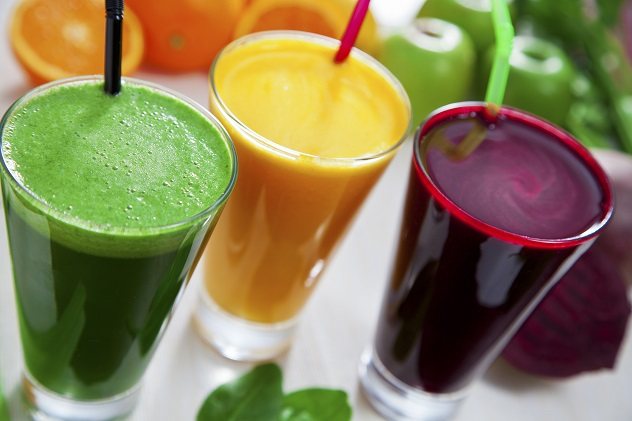
Green salad juice is a source of phosphorus. The drink itself has a very bland taste, so you can drink it for any gastritis, flavored with a few drops of lemon.
Universal medicines
Treatment of gastritis with aloe juice is possible in several ways. One option is to take 1 tsp for 3 weeks in a row. fresh juice. After this, after half an hour, you definitely need to eat something. This procedure must be repeated three times a day. For medicinal purposes, it is also recommended to prepare a mixture of aloe and dandelion juices in a ratio of 2 to 1. The dosage remains the same as in the first recipe, the duration of therapy does not change.
Aloe juice for gastritis can be used in combination with honey and wine. For 150 ml of juice, take 0.2 liters of natural liquid honey and 0.5 liters of red wine. Everything is mixed well and infused for a couple of weeks. The medication prepared according to this recipe is taken for a month. You can opt for simpler recipes, for example, a mixture of aloe juice and sugar, which is drunk 1 tsp.
Parsley and celery juice are used for both types of gastritis. The medicine from parsley is drunk in small portions (10 ml) up to 5 times a day before meals. It helps to quickly normalize acidity and improve secretion. The juice of wheat germ and lettuce leaves is very useful. The latter is an effective pain reliever that helps restore the intestinal and gastric mucosa. It should be taken in small portions - 30-40 g per day at a time, repeating the procedure for one week.
Burdock juice protects the mucous membrane from irritants, restores and normalizes the functions of the stomach. Therapy with this remedy lasts 1.5 months. All this time you should take 0.5 tbsp. l. juice three times a day. For gastritis, you should pay attention to fresh birch sap. The duration of treatment is up to 3 weeks. During this period, the level of appetite returns to normal, all digestive processes improve. It is drunk 1 glass up to 3 times a day shortly before meals.
Rules of use
Treatment with juices brings results only if they are prepared and drunk correctly.
- Freshly squeezed nectars must be drunk immediately, because over time the beneficial substances in them are destroyed.
- Juices are not consumed in their pure form; they must be diluted 50% with clean water.
- You can and even need to drink juice on an empty stomach, then the beneficial substances are better absorbed and absorbed.
- After drinking the juice, it is better to rinse your mouth, otherwise the biologically active substances will begin to corrode tooth enamel.
When used skillfully, juice therapy can bring even more results than expected. And for patients with gastritis, this is a good opportunity to compensate for the lack of vitamins, which is caused by digestive problems.
Author : Stashevskaya Evgenia Valerievna, especially for the site Zhkt.ru
Beet juice
Beetroot juice stimulates the production of gastric juice, so in case of hyperacid gastritis, it is undesirable to use it in its pure form. Although beets contain a lot of useful substances, especially minerals. The content of iodine, zinc and iron in beets is much higher than that in other vegetables. And yet, high acidity is one of the contraindications for drinking fresh beet juice. This vegetable can only be eaten boiled (steamed) or baked during the period of remission for gastritis with high acidity. Heat treatment practically does not deprive it of its beneficial properties, and freshly prepared juice can harm the body.
It must be remembered that self-medication, even with natural substances, can bring not only benefits, but also harm. When starting treatment with juices, you need to take into account the individual tolerance of plant products, and also start with small test doses, and if the body accepts the treatment well, you can continue, increasing the dose to the recommended one. If bloating, colic, or diarrhea begin from drinking fresh juice, treatment should be stopped.
If juicing is intended to complement the effect of medications, consultation with a qualified specialist is required, since only he will be able to determine the possible compatibility of the juice with the prescribed treatment.
What juices are prohibited?
The following nectars are not recommended for consumption: carrot, lemon, mango. Carrot is dangerous due to the increased level of acidity; it can increase the indicator even more. Nectar helps with diarrhea, but is not recommended for gastritis. Lemon drink contains many acids that affect the gastric mucosa and damage the walls of the organ.
Fresh mango made from unripe fruit can cause colic. For healthy people, it is not recommended to consume the latter type of nectar in undiluted form.
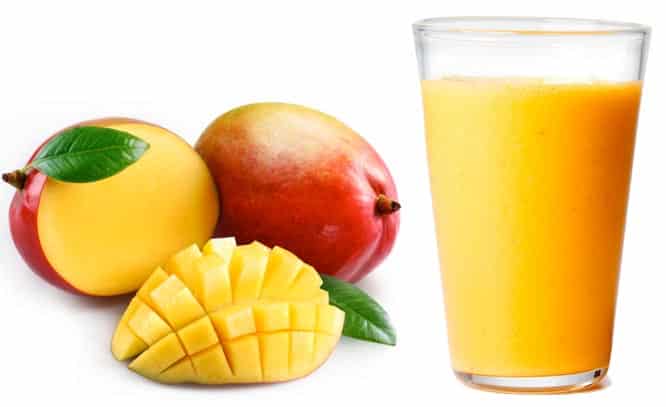
For patients with gastritis, severe stomach pain may be an undesirable effect. From an undiluted drink, a healthy person may experience stomach pain and heartburn. The components act on the intestinal walls, causing changes.
The characteristics of tomato juice and its composition allow the drink to have a positive effect on the stomach. Despite the effect, it is advisable to consult a doctor to find out recommendations for use in each specific case. It is necessary to comply with the doctor’s requirements, eat vegetables and fruits only after consultation, and adjust the diet if necessary.
The information on our website is provided by qualified doctors and is for informational purposes only. Don't self-medicate! Be sure to consult a specialist!
Author: Rumyantsev V. G. Experience 34 years.
Gastroenterologist, professor, doctor of medical sciences. Prescribes diagnostics and carries out treatment. Expert of the group for the study of inflammatory diseases. Author of more than 300 scientific papers.
Drinking tomato juice
Tomato nectar is rich in vitamins and microelements. The composition contains ingredients that strengthen the immune system, improve the general condition of the body and promote better digestion. Substances eliminate the processes of rotting and fermentation in the intestines.
An unpleasant effect can occur when eating food that promotes fermentation, the presence of illness, or poor nutrition. Tomato juice for gastritis relieves negative processes in the digestive system and normalizes the functioning of the intestinal tract.
How to make the right homemade tomato juice?
As already mentioned, to treat gastritis, you should not buy store-bought juice; it is better to prepare it yourself. After all, this is the only way to be sure that there are no harmful substances in it. There are two options with which you can prepare tomato juice at home:
- Use fresh tomatoes;
- Replace tomatoes with tomato paste.
The easiest and simplest way to make tomato juice is to use tomato paste. To do this, you need to take a glass of water and dilute a few tablespoons of paste in it, and add salt if necessary (patients who suffer from acute gastritis are not recommended to add salt, pepper or vinegar ). That's all.
But it is most beneficial to use only fresh tomatoes to prepare a tomato drink.

It is not only tastier, but also much healthier than those juices that can be found on the shelves. Freshly squeezed juice can be prepared using the most ordinary juicer. The main rule after preparation is to drink it immediately .
The thing is that tomato juice quite quickly wastes its beneficial properties, and after some time it begins to flake - water forms on its surface and it is for this reason that it is recommended to always stir the juice.
